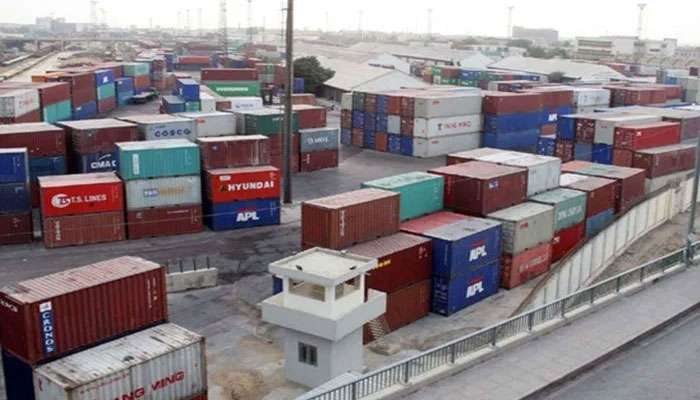Time for a shift
The ongoing economic crisis has necessitated the implementation of an economics mix that can support agriculture and IT at the same time.
It is safe to claim that IT is the future of all economies but it doesn’t downplay the importance of agriculture even a bit. In fact food security is making room for sustainable agriculture at all levels.
IT can be a tool to enhance demand and supply in the agriculture sector, and artificial intelligence can lend some help in managing farms, but the role of the agriculture sector which is called the backbone of the economy cannot be ignored.
Keeping in view the significance that each sector brings to the table, countries like Pakistan should focus on an entrepreneurial economy, instead of focusing on IT or agriculture alone.
From IT to entertainment and food, the spirit of entrepreneurship in all sorts of businesses can be the game-changer. This spirit can fuel exports which in turn can help us develop a sustainable economic model.
Our youth or the new lot of young graduates are more business oriented than being tech-savvy because we do not have enough quality IT schools that can give birth to a new generation of IT experts like institutes in India did. Therefore, tapping what’s available should be the short- and long-term goal.
On the pattern of the SIFC, a special council should be established that could fuel the collaborations of the federal and provincial governments with the private sector. The council should identify the areas for entrepreneurial growth in consultation with the private sector, and programmes or soft loans to facilitate entrepreneurs should also be scaled-up.
We do have such government schemes like there’s the Rozgar Scheme that has created around 200,000 jobs in Punjab, and young people from IT, agriculture, and other sectors have benefitted from such loans. However, this is where the will of the government matters the most.
The said programme was launched in 2020, and it disbursed loans worth Rs3 billion in the province during the first three years whereas the same programme worked more efficiently during the current year and loans worth Rs10 billion have been disbursed so far under the scheme.
The completion of the business facilitation centre in Lahore for the ease of doing business on the pattern of the SIFC is another achievement. While there is room for more of such schemes, provinces need the kind of governments that empower their administrative secretaries, departmental heads to work with full capacity and confidence, only then can such ideas start bearing fruits.
The next elected government must work on empowering the civil service. An intelligently designed entrepreneurial growth policy coupled with a strong implementation force of civil service can actually facilitate the government in capitalizing on the youth bulge.
In addition to the entrepreneurial economy, there is an ongoing trend of the orange economy or the creative economy which should also be tapped. The orange economy is often misunderstood locally as content limited to influencers on digital media but it is more about arts and crafts, filmmaking and advertising, and research and ideas.
Mostly regarded as a side hustle, it can eventually result in a full-time gig at the macro level. To capitalize on the orange economy, provincial governments need to task relevant departments to draft related policies like film policy, etc, which will create jobs and present sectoral vision for the next 50 years.
Similarly, the handicrafts and artisans of Pakistan are known worldwide but their commercial side needs to be maximized as well. This segment not only presents the creative image of the country to the outer world but also creates means for earning foreign exchange.
The writer is a freelance journalist. He has also served as media adviser to the World Bank and Unicef-funded healthcare and tourism-related projects in Punjab. He tweets/posts @EAAgop
-
 Lana Del Rey Announces New Single Co-written With Husband Jeremy Dufrene
Lana Del Rey Announces New Single Co-written With Husband Jeremy Dufrene -
 Ukraine-Russia Talks Heat Up As Zelenskyy Warns Of US Pressure Before Elections
Ukraine-Russia Talks Heat Up As Zelenskyy Warns Of US Pressure Before Elections -
 Lil Nas X Spotted Buying Used Refrigerator After Backlash Over Nude Public Meltdown
Lil Nas X Spotted Buying Used Refrigerator After Backlash Over Nude Public Meltdown -
 Caleb McLaughlin Shares His Resume For This Major Role
Caleb McLaughlin Shares His Resume For This Major Role -
 King Charles Carries With ‘dignity’ As Andrew Lets Down
King Charles Carries With ‘dignity’ As Andrew Lets Down -
 Brooklyn Beckham Covers Up More Tattoos Linked To His Family Amid Rift
Brooklyn Beckham Covers Up More Tattoos Linked To His Family Amid Rift -
 Shamed Andrew Agreed To ‘go Quietly’ If King Protects Daughters
Shamed Andrew Agreed To ‘go Quietly’ If King Protects Daughters -
 Candace Cameron Bure Says She’s Supporting Lori Loughlin After Separation From Mossimo Giannulli
Candace Cameron Bure Says She’s Supporting Lori Loughlin After Separation From Mossimo Giannulli -
 Princess Beatrice, Eugenie Are ‘not Innocent’ In Epstein Drama
Princess Beatrice, Eugenie Are ‘not Innocent’ In Epstein Drama -
 Reese Witherspoon Goes 'boss' Mode On 'Legally Blonde' Prequel
Reese Witherspoon Goes 'boss' Mode On 'Legally Blonde' Prequel -
 Chris Hemsworth And Elsa Pataky Open Up About Raising Their Three Children In Australia
Chris Hemsworth And Elsa Pataky Open Up About Raising Their Three Children In Australia -
 Record Set Straight On King Charles’ Reason For Financially Supporting Andrew And Not Harry
Record Set Straight On King Charles’ Reason For Financially Supporting Andrew And Not Harry -
 Michael Douglas Breaks Silence On Jack Nicholson's Constant Teasing
Michael Douglas Breaks Silence On Jack Nicholson's Constant Teasing -
 How Prince Edward Was ‘bullied’ By Brother Andrew Mountbatten Windsor
How Prince Edward Was ‘bullied’ By Brother Andrew Mountbatten Windsor -
 'Kryptonite' Singer Brad Arnold Loses Battle With Cancer
'Kryptonite' Singer Brad Arnold Loses Battle With Cancer -
 Gabourey Sidibe Gets Candid About Balancing Motherhood And Career
Gabourey Sidibe Gets Candid About Balancing Motherhood And Career




